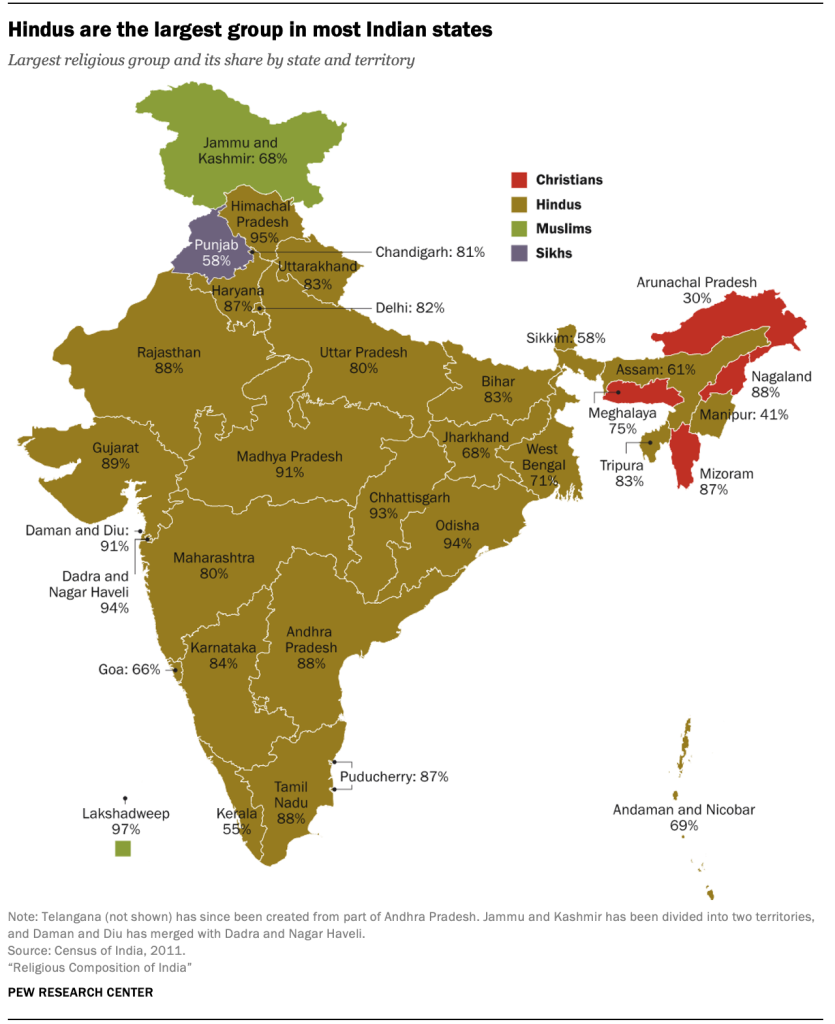Why a nation of 1.45 billion wants more children {South Indian states have replacement rates below Europe, while Northern states have far higher}
BBC ^ | Dec 16, 2024 | Soutik Biswas
Posted on 12/19/2024 3:05:19 AM PST by Cronos
Last year, India nudged past China to become the world's most populous country, according to UN estimates.
With nearly 1.45 billion people now, you'd think the country would be quiet about having more children. But guess what? The chatter has suddenly picked up.
Leaders of two southern states – Andhra Pradesh and Tamil Nadu – have recently advocated more children.
Andhra Pradesh is mulling providing incentives, citing low fertility rates and ageing population. The state also scrapped its "two-child policy" for local body elections, and reports say neighbouring Telangana may soon do the same. Next-door Tamil Nadu is also making similar, more exaggerated, noises.
India's fertility rate has fallen substantially - from 5.7 births per woman in 1950 to the current rate of two.
Fertility rates have fallen below the replacement level of two births per woman in 17 of the 29 states and territories. (A replacement level is one at which new births are sufficient to maintain a stable population.)
The five southern Indian states lead India's demographic transition, achieving replacement-level fertility well ahead of others. Kerala reached the milestone in 1988, Tamil Nadu in 1993, and the rest by the mid-2000s.
Today, the five southern states have total fertility rates below 1.6, with Karnataka at 1.6 and Tamil Nadu at 1.4. In other words, fertility rates in these states match or are less than many European countries.
But these states fear that India's shifting demographics with varying population shares between states, will significantly impact electoral representation and state wise-allocation of parliamentary seats and federal revenues.
"They fear being penalised for their effective population control policies, despite being better economic performers and contributing significantly to federal revenues," Srinivas Goli, a professor of demography at the International Institute for Population Sciences, told the BBC.
(Excerpt) Read more at bbc.com ...
TOPICS: Culture/Society; Foreign Affairs
KEYWORDS:

Click here: to donate by Credit Card
Or here: to donate by PayPal
Or by mail to: Free Republic, LLC - PO Box 9771 - Fresno, CA 93794
Thank you very much and God bless you.
1 posted on 12/19/2024 3:05:19 AM PST by Cronos
To: Cronos
It is interesting also to compare the fertility rate vs economic progres

The lower the income, the higher the fertility rate (look at the eastern part of north India - Bihar especially
2 posted on 12/19/2024 3:09:08 AM PST by Cronos
To: Cronos
Also note that the fertility drop was second highest in the only Muslim majority state - Jammu


3 posted on 12/19/2024 3:12:02 AM PST by Cronos
Disclaimer: Opinions posted on Free Republic are those of the individual posters and do not necessarily represent the opinion of Free Republic or its management. All materials posted herein are protected by copyright law and the exemption for fair use of copyrighted works.
FreeRepublic.com is powered by software copyright 2000-2008 John Robinson

 By Free Republic | Created at 2024-12-19 11:12:47 | Updated at 2024-12-19 13:52:08
2 hours ago
By Free Republic | Created at 2024-12-19 11:12:47 | Updated at 2024-12-19 13:52:08
2 hours ago





